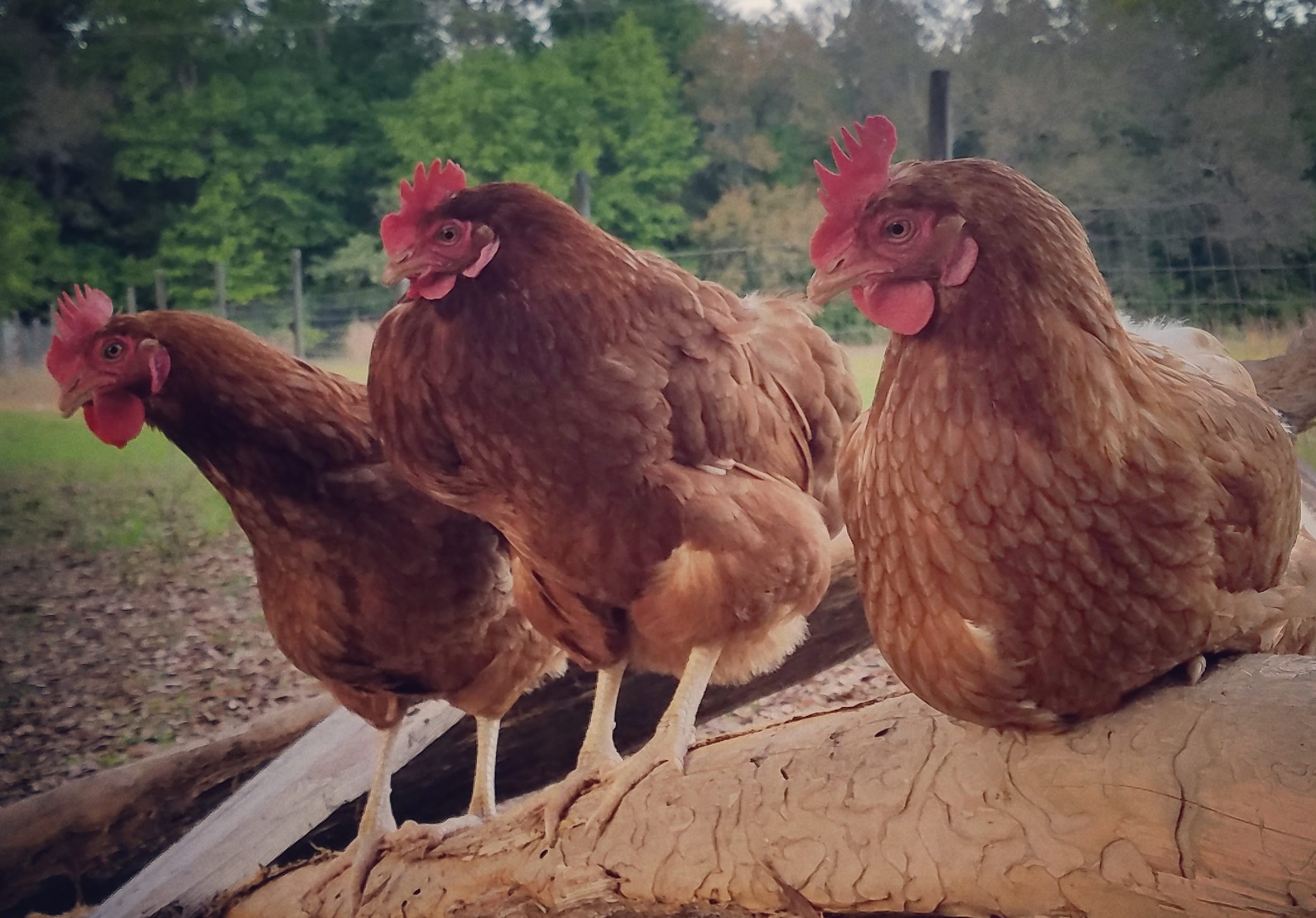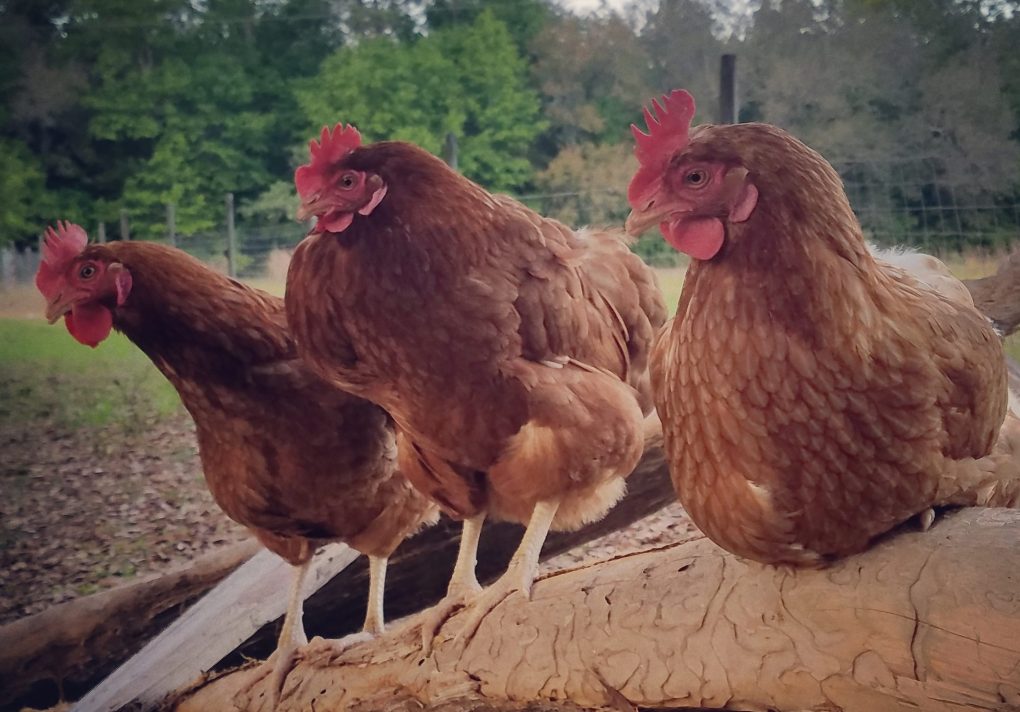Latest Fear Mongering About Self Sufficiency: Salmonella in Backyard Chickens
 By Joe Jarvis
By Joe Jarvis
Two years ago I moved to Florida from Massachusetts. When people found out I was moving, they would often immediately remark, “Get ready for the brutal heat and humidity!”
It was their first instinct to bring up any possible negative about moving to a much more pleasant climate.
About a year later, I posted pictures of vegetables we had grown, and chickens we keep. I also mentioned the name we call our mini-farm: Prickly Pear Plantation.
Was the first comment from my progressive liberal friend all about how great it is that we aren’t using any pesticides? Was it about how happy our free-range chickens look, or about how great it is that we aren’t supporting Monsanto? Did he remark on the fact that basically everything we build has some materials recycled from old projects and equipment on the property?
No. He said we shouldn’t call our mini-farm a plantation because it is apparently politically incorrect.
I’ve also had fat people tell me that running is bad for my knees. There actually are some health risks related to too much exercise. And there’s ten times more related to not enough exercise.
It isn’t just peers that seem so eager to bring attention to the negatives in any positive situation.
Widget not in any sidebars
The media does it too.
I just read a report about how the trend of raising backyard poultry is contributing to a rise in salmonella infections. Fox, the New York Times, NPR and other popular outlets have reported the same thing within the last few months. CBS actually titled their article: “Backyard Chicken Trend Turns Deadly.”
All the reports are based on a Centers for Disease Control warning about the “outbreak” of salmonella among small-scale chicken keepers.
Now I certainly don’t object to good information about staying healthy while raising livestock. A lot of people who keep chickens on a small scale are new to it.
But looking at the numbers of infections, I doubt the salmonella risk is even as great as buying chicken and eggs from the store.
Since January, more than 1,100 people have contracted salmonella poisoning from chickens and ducks in 48 states, according to the Centers for Disease Control. Almost 250 were hospitalized and one person died. The toll was four times higher than in 2015.
If the trend of keeping chickens is growing, it shouldn’t be surprising that the rates of salmonella infection are keeping pace. And while these numbers may seem high at first glance, over one million people countrywide come down with salmonella a year. So only about one-tenth of 1% of cases stem from people keeping chickens at home.
The general population has a risk of about 1 in 320 of getting salmonella in a given year. That means if there are more than about 320,000 people who keep chickens in their backyards in the USA, they have a lower risk than the general population of contracting salmonella.
There aren’t very reliable statistics on how many people in the U.S. keep chickens for personal use. But a 2013 survey estimated .8% of American households keep backyard chickens. That means about one million households keep chickens. Going with the average household of 2.58 people, you could say perhaps 2.5 million people live in a household that keeps backyard chickens.
 If these numbers are even close to accurate–or even off by a factor of five–that means the risk of salmonella is actually lower for backyard chicken farmers than for the general population!
If these numbers are even close to accurate–or even off by a factor of five–that means the risk of salmonella is actually lower for backyard chicken farmers than for the general population!
Another interesting thing to note is that the distribution of baby chicks is still pretty centralized. But the centralized food industry is one of the biggest problems relating to foodborne illness in the first place. So is the problem keeping chickens in your backyard, or is the problem sourcing those chickens from one of a handful of hatcheries?
In that sense, scaring people away from keeping chickens in their backyard is just ushering them into another centralized food industry just as–or more–likely to get them sick. The real solution is keeping chickens as well as sourcing them locally from a farm you can visit.
So the problem with these kinds of alarmist articles is that they could curb an overall more healthy behavior. They encourage people to do the same old unhealthy thing, instead of pursuing a healthier alternative for fear of a relatively obscure risk.
Keeping chickens might actually reduce the overall chance of getting salmonella from poultry products. But even if it increases the risk, it doesn’t take into account the long-term health benefits of eating homegrown versus storebought food.
And then there are so many other factors that one alarming statistic does not take into account. Maybe keeping chickens is better for your mental health. Maybe knowing where your eggs come from decreases your stress levels. Perhaps being exposed to livestock inoculates you against more serious diseases.
(An interesting side note: In the late 1700s, smallpox was a devastating disease. But Dr. Edward Jenner noticed that milkmaids who had previously come down with cowpox were immune to smallpox. The symptoms of cowpox were much milder compared to deadly smallpox. Yet the diseases were similar enough so that having had cowpox acted as an inoculation against smallpox.)
The overblown fear of salmonella from backyard chickens probably makes people less healthy overall.
Society seems to hate anything that empowers individuals.
Basically, the overall message from society and the media seems to encourage the status quo–even when the status quo is less healthy or riskier.
I see this attitude even in the comments of The Daily Bell. If I am too optimistic about a trend, technology, or movement, I basically hear, don’t you know people have always been slaves and always will be!
If I talk about exiting an unjust society its: oh so you’re just going to run and hide? If I talk about standing up to the powers that be its: wow, you really think you could defeat the machine? If I talk about finding a group of like-minded people to form a voluntary community with its: what are you some kind of hippie communist?
Most people don’t want anyone else to change. Misery loves company. People would rather drag others down than build themselves up.
If one person isn’t into keeping chickens, they get some sort of pleasure hearing about any possible pitfall. Fat people like that runners injure themselves. Liberals care more about the name of my mini-farm than about the positive impact it has. And the people freezing their asses off in Massachusetts just have to make themselves feel better by telling me how miserable I’ll be in the summer.
But individuals actually do have control over their lives. They can divorce themselves from a centralized and unhealthy food industry. They can make themselves free, happy, and prosperous. They don’t have to live in a place they hate or continue a depressing lifestyle.
It is a victim mentality that seeks excuses not to make a positive change in one’s own life. Why bother if the alternative is just as unhealthy. Why try if I will just get beat down by society.
And the media definitely doesn’t want people to change. They have a vested interest in making sure there is an army of negatrons to counter every positive utterance. That is how the media protects the status quo. It is how they make sure people don’t step too far out of line.
It is how they make sure people don’t empower themselves to stop depending on the state and corporate institutions.
Don’t fall for their hype.
You can read more from Joe Jarvis at The Daily Bell, where this article first appeared.



